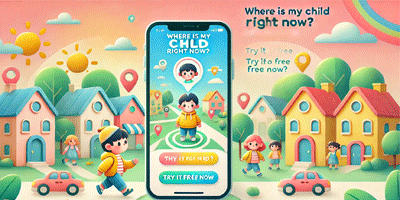What is a Location-Tracking Ap…
Page Info
Writer sasasak_AndyKim Hit 997 Hits Date 25-01-16 15:15Content
What is a Location-Tracking App?
A location-tracking app uses technologies like GPS (Global Positioning System) to track and display a user's real-time location or movement history. These apps are widely used by individuals, businesses, and public organizations for various purposes, ranging from personal safety to logistics management.
Key Features of Location-Tracking Apps
Real-Time Location Sharing
Users can share their live location with friends, family, or colleagues.
It is particularly useful in emergency situations.
Route Tracking and History
Tracks and records movement routes for purposes like fitness, travel, or delivery.
Geofencing
Creates virtual boundaries (geofences) and sends alerts when a user enters or exits these areas.
Commonly used for child safety, pet tracking, and logistics management.
Emergency Alerts and SOS Requests
Allows users to send emergency SOS requests with location details in critical situations.
Personalized Services
Provides recommendations for nearby places (restaurants, cafes) or weather updates based on the user’s location.
Applications of Location-Tracking Apps
Personal and Family Safety
Helps monitor the location of children or elderly family members in real-time.
Plays a vital role in preventing missing persons and responding to emergencies.
Logistics and Delivery Services
Tracks delivery vehicles or packages in real-time and shares updates with customers.
Optimizes delivery routes to improve efficiency.
Fitness and Health Tracking
Tracks running, cycling, or hiking routes to assist with health and fitness goals.
Business and Advertising
Uses location data to deliver personalized advertisements and promotions.
Sends targeted offers to customers near specific stores.
Smart Cities and Public Services
Essential for traffic management, emergency response, and public safety in urban areas.
Advantages of Location-Tracking Apps
Provides real-time data for convenience and better decision-making.
Offers broad applications across industries and personal use cases.
Advances in technology continue to improve accuracy and speed.
Challenges and Limitations
Privacy Concerns
Location data is highly sensitive, and misuse or leaks can lead to serious issues.
Strong security measures and transparent data usage policies are critical.
Technical Limitations
GPS signals are weaker in indoor or underground environments, affecting accuracy.
High battery consumption can impact the user experience.
Regulatory and Legal Issues
Compliance with local data collection and usage laws is necessary to avoid fines or restrictions.
The Future of Location-Tracking Apps
Location-tracking apps are set to evolve further with the integration of technologies like 5G, AI, and IoT. These advancements will enable:
More personalized services.
Real-time monitoring with enhanced precision.
Greater synergy with emerging industries such as autonomous vehicles, smart cities, and healthcare.
Developers planning to create location-tracking apps should focus on privacy protection, data security, and reliable location services to meet user expectations and industry standards.
A location-tracking app uses technologies like GPS (Global Positioning System) to track and display a user's real-time location or movement history. These apps are widely used by individuals, businesses, and public organizations for various purposes, ranging from personal safety to logistics management.
Key Features of Location-Tracking Apps
Real-Time Location Sharing
Users can share their live location with friends, family, or colleagues.
It is particularly useful in emergency situations.
Route Tracking and History
Tracks and records movement routes for purposes like fitness, travel, or delivery.
Geofencing
Creates virtual boundaries (geofences) and sends alerts when a user enters or exits these areas.
Commonly used for child safety, pet tracking, and logistics management.
Emergency Alerts and SOS Requests
Allows users to send emergency SOS requests with location details in critical situations.
Personalized Services
Provides recommendations for nearby places (restaurants, cafes) or weather updates based on the user’s location.
Applications of Location-Tracking Apps
Personal and Family Safety
Helps monitor the location of children or elderly family members in real-time.
Plays a vital role in preventing missing persons and responding to emergencies.
Logistics and Delivery Services
Tracks delivery vehicles or packages in real-time and shares updates with customers.
Optimizes delivery routes to improve efficiency.
Fitness and Health Tracking
Tracks running, cycling, or hiking routes to assist with health and fitness goals.
Business and Advertising
Uses location data to deliver personalized advertisements and promotions.
Sends targeted offers to customers near specific stores.
Smart Cities and Public Services
Essential for traffic management, emergency response, and public safety in urban areas.
Advantages of Location-Tracking Apps
Provides real-time data for convenience and better decision-making.
Offers broad applications across industries and personal use cases.
Advances in technology continue to improve accuracy and speed.
Challenges and Limitations
Privacy Concerns
Location data is highly sensitive, and misuse or leaks can lead to serious issues.
Strong security measures and transparent data usage policies are critical.
Technical Limitations
GPS signals are weaker in indoor or underground environments, affecting accuracy.
High battery consumption can impact the user experience.
Regulatory and Legal Issues
Compliance with local data collection and usage laws is necessary to avoid fines or restrictions.
The Future of Location-Tracking Apps
Location-tracking apps are set to evolve further with the integration of technologies like 5G, AI, and IoT. These advancements will enable:
More personalized services.
Real-time monitoring with enhanced precision.
Greater synergy with emerging industries such as autonomous vehicles, smart cities, and healthcare.
Developers planning to create location-tracking apps should focus on privacy protection, data security, and reliable location services to meet user expectations and industry standards.
List of comments
No comments

